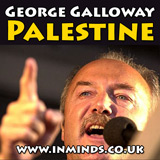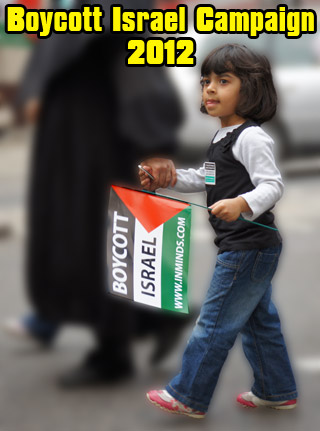
 Innovative Minds © 2014. All Rights Reserved. www.inminds.co.uk | ||||
Israel launches campaign for a new public imageDina Kraft, JTA (Global News Sevice of the Jewish People) TEL AVIV — What kind of image does the average American have of Israel? According to recent focus groups, the picture of the Jewish state is a grim one: grey and fortress-like, militarized, male-dominated, uniformly religious and generally uninviting.
Israel is a brand disaster to the outside world.
Michael Peters, chairman of the Identica Partnership, a London-based branding company “They don’t see anything of normal, everyday life,” said Boaz Mourad, CEO of Insight, a research group that conducted focus groups in the United States. “All they see is conflict and religion.” With the help of some of the country’s top advertising brains, the Foreign Ministry is hoping to “rebrand” Israel. The idea is to remold the country’s public image — arguably the worst in years — from a bloody cauldron of conflict to a vibrant, dynamic society brimming with night life, innovative businesses and attractive and welcoming people. At a recent conference, government officials and international experts exchanged ideas on how to make that happen. The concept of national branding, which began about 15 years ago, was borrowed from the advertising world when people began to wonder if the tools of product branding could be translated into promoting countries. The goal was to help countries craft a highly managed, positive international identity that would boost investment, tourism and international status. Countries like Spain, Turkey and Croatia have launched branding campaigns to improve their images, aided by experts who helped them identify their major selling points and develop core messages that could be coordinated among government, business and cultural leaders. “We, the Israelis, lost the ability to develop that overarching message,” said Ido Aharoni, media advisor to Foreign Minister Tzipi Livni. “And when we do have a message, we don’t have the ability to do what is called ‘message discipline.’ ” Once a brand concept is developed for Israel, part of the challenge will be keeping all the players in line, Aharoni said — from squabbling government ministers on down. Research commissioned by the Foreign Ministry shows most people know Israel exists — there’s brand recognition, in marketing terminology — but other key factors are low, such as how well-liked Israel is and how relevant it is to people’s lives. “Israel is not perceived as fun or normal. Our job is to say, ‘Yes, we are not normal, but we are far more normal than you think,’ ” Aharoni said. For years Israel has worked to build political support, but government officials say that’s not enough in today’s global economy. Israel needs to be seen as a competitive place so that businesspeople and tourists see beyond the conflict when they think of Israel and see it as a place to invest and visit. Advertising experts point to branding success stories of countries like Colombia, which has suffered a bloody drug war yet still managed to build a positive image around its coffee industry, with the image of Juan Valdez on his donkey leading the way. Another example is Croatia, which has risen from the Balkan conflict of the 1990s to become a major tourist destination with an image of beaches and picturesque towns. But how can Israel repaint its image as a conflict zone as the seemingly intractable and violent Israeli-Palestinian conflict continues? Guy Toledano, vice president of business development for Bauman Ber Rivnay Saatchi and Saatchi, says it could take 10 to 15 years — but that with the right approach, Israel could significantly shift its image in the world. “What needs to happen is for us to find a framework filled with images, symbols and words, and this is tough work. It’s what we call the essence,” he said. He pointed out images Britain used in its “Cool Britannica” branding campaign, of an Oxford student and a bartender at a pub. The goal was to give the sense of a country that was approachable and hip. “Rabbis, soldiers and settlers — these are all images that don’t provoke positive images,” Toledano said, referring to the current cast of characters that those abroad believe are typical Israelis. “Brands are about stories, and the story of Israel should be revised. It was once the story of pioneers, of making the deserts bloom and the swamps disappear,” he said. But with the aftermath of the Six-Day War in 1967 and Israeli control of the West Bank and Gaza Strip, the world’s image of Israel changed drastically for the worse, Foreign Ministry officials and others said. Among the speakers at the conference was Larry Weinberg, executive vice president of Israel21c, which promotes stories of Israeli technological and scientific innovations that benefit Americans. Weinberg said Israeli representatives must shift their focus from “hasbara,” a concept that means public relations or propaganda and essentially refers to how Israel explains itself to the world. Officials long have assumed that if they can convince the world that Israel is right in its conflict with the Arabs, international support and positive feelings will follow. “Clearly it hasn’t worked,” Weinberg said. “We need a change.” Weinberg believes his organization’s approach helps Jews and others take pride in Israel. Michael Peters, chairman of the Identica Partnership, a London-based branding company, said Israel’s negative image is bad not just for Israel but for Diaspora Jews as well. “This is a real emergency. We don’t have a lot of time,” he said. “Israel is a brand disaster to the outside world.” Source: http://www.ajn.com.au/news/news.asp?pgID=1931 Also Of InterestPage URL: http://inminds.com/article.php?id=28
|
|
Support Us
If you agree with our work then please support us.Campaigns INMINDS Facebook Live Feed Latest Video's
INMINDS Twitter Feed Tweets by @InmindsComFeatured Video's
You need Flash player 8+ and JavaScript enabled to view this video.
[all videos (over 200)..] Featured MP3 Podcast  During the holy month of Ramadan, as we move towards the Eid, I was going around Muslim shops in Tower Hamlets and elsewhere telling them that although they had collection boxes for the Mosque, although they had religious imagery in their shops, although they were selling dates to the faithful people to break their fast - the dates were made in Israel! They were stained with the blood of the Palestinian people! And Muslim shop keepers were selling them! Respect MP for Tower Hamlets Respect Youth Tower Hamlets, Feb 2008 [21min / 11Mb] [all podcasts..] Newsletter Feedback |
 |
 |












































